
Are you learning Italian? Thinking about downloading apps for learning Italian instead of taking classes?
If you're busy and prefer learning at your own speed or taking lessons on the go, nothing beats an app. The only question remains: which is the best app to learn Italian?
If you type “learn Italian” into the search bar of your phone app store, you’ll see dozens upon dozens of options.
Because of this, even thinking of choosing one can be a headache. And trying all of them even more so. The good news is that I'm here to save you the time and hassle of going through all of that.
Pro Tip
By the way, if you want to start your Italian learning journey fast and have fun while doing it, my top recommendation is Italian Uncovered which teaches you through StoryLearning®.
With Italian Uncovered you’ll use my unique StoryLearning® method to learn Italian naturally through story… not rules. It’s as fun as it is effective.
If you’re ready to start, click here for a 7-day FREE trial.
What Is The Best App To Learn Italian?
In this article, I'll be looking at the best apps to learn Italian. Now, all of the apps I’ve selected below are fine choices, so you really can’t go wrong with any of them.
But I will go into the specifics of each to see what makes them different and which kind of learner could benefit from which specific app. All of the best apps for learning Italian below are available to both Android and iOS users.
And at the end of the post, I'll share an alternative to Italian learning apps that will help you go from beginner to conversationally fluent in the Italian language fast.
The Downside of Language Learning Apps
While apps may be one of the most popular ways to learn a new language these days, you should keep in mind that there are some downsides to learning a new language solely with an app.
The app villian is real, after all.
Remember, apps' main purpose is to keep you using them, and while the gamified nature of them makes you feel like you're making progress, it can be a false illusion.
Apps may make you learn vocabulary you'll never use, and some apps won't help you improve your listening skills or your ability to converse with a native Italian speaker.
To avoid app overwhelm, have a goal before you pick your app. That way, you can choose an app that serves your purpose.
So whether you're just getting started and want an introduction to new Italian words or whether you want to brush up on your Italian grammar, there's an app for you.
This list also includes apps that you can use to practice your conversational skills so you can actually speak Italian. It's divided into categories to help you decide which app is best for your learning languages your way.
16 Best Apps To Learn Italian
I'll start with the best apps for those who are studying Italian for the very first time and need a gentle introduction to the language and its nuances.
Then I'll move on to the apps best for speaking and listening, full immersion, and learning vocabulary.
Italian Language Apps for Beginners
#1 Drops
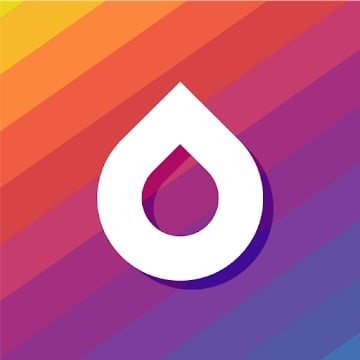
Promising to teach you a language with just five to ten minutes of learning per day, this app may sound like a quick fix, but that’s not strictly true.
Drops actually takes things slow so that your head won’t be buzzing with too many new words and phrases you only half remember.
Those few minutes every day really allow for information to sink in, and frequent repetition solidifies new knowledge.
Admittedly not the best for advanced learners and only useful up to a point, Drops may be the best Italian language app if you’re absolutely new to Italian besides knowing about ciao and grazie.
Imagine Drops, sort of like word Tinder, where you swipe up or down on words depending on whether you’d like to learn them, and then pair words you selected to little pictogram bubbles, or “drops”.
It helps that the app to learn Italian is beautiful, easy to use, and addictive. There's an easy way to look at your statistics. And the points you earn add up to buy you more time to practice.
While the app is available for free, there is also a premium version that erases the time limit.
Best for: Casual learners and visual types at the very beginning of their learning journey.
#2 ItalianPod101 (Innovative Language 101)
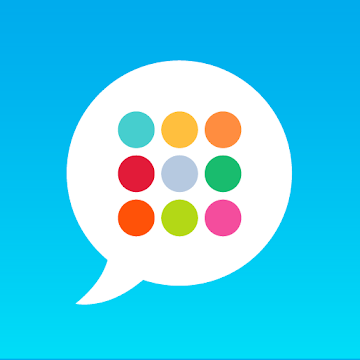
Innovative Language 101 or Pod101 lessons are available for a massive number of languages, and so too for Italian.
One thing that sets the ItalianPod 101 app apart is you can find all the materials you need, whether you're the newest beginner or can speak the language fluently.
If you're looking for a one-stop shop to learn Italian, it's hard to beat ItalianPod101.
Here, you can learn Italian in a similar way you would from a book, through in-person lessons, or Rosetta Stone.
Lessons start with the most basic of things, such as learning to count to ten or how to ask people for directions, before going into more detail on the structure, grammar, and vocabulary of the language, like reflexive verbs in Italian or Italian possessive adjectives.
All pod101 language students can make use of an online platform with a variety of free lessons and the option to choose a paid course that goes into even more detail.
Best for: Those who are just starting out, since the lessons cover a whole lot of ground right from the very beginnings of learning in a straightforward, simple way.
#3 DuoLingo

Often listed as the best free app for language learning, Duolingo is great if you're getting started with your Italian journey and are short on time.
If your main goal is to learn simple new vocabulary and the very basics, the free version of the app is an easy way to start.
You can learn Italian vocabulary in just a few minutes a day. The app's method of teaching Italian words is very effective.
The downside of Duolingo? The free app can teach you random sentences that you may never really use!
If you're looking to learn conversational Italian so you can actually talk with a native speaker, it may not be the best app for you. But for absolute beginners, the free version of the app is worth a try.
If you don't want to see ads or want more exclusive content and premium features, you'll need to sign up for the premium plus version at an additional cost.
Best for: Those who want to learn the basics quickly (especially their vocabulary).
Check out this review of Babbel vs. Duolingo.
Best App to Practice Speaking And Pronunciation
#4 Memrise
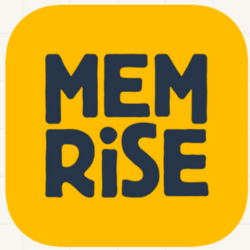
This AI-powered app tailors lessons to your personal preferences and interests. It's like having a personal tutor in your pocket!
You'll improve your Italian speaking skills while learning real-world contexts for the language.
The app offers courses in 23 different languages, and one of the things that makes it stand out from other apps is that you get access to thousands of native Italian videos.
These are great for listening to native Italian speakers, pronunciation practice, and fine-tuning your skills for having a real-life conversation.
There's a free version of the app that's pretty comprehensive and will help you with basic Italian lessons. You'll start memorising Italian vocabulary and grammar rules and get to grips with the basics of the Italian language.
You can sync your Memrise account across your devices and even join weekly live tutoring sessions with other Italian learners. As a member of the community, you get access to a bunch of other language resources to help with your learning too.
Best for: Those who are serious about getting their pronunciation spot on.
Apps to Learn Italian For Intermediate Learners (On a Serious Learning Journey)
#5 Pimsleur
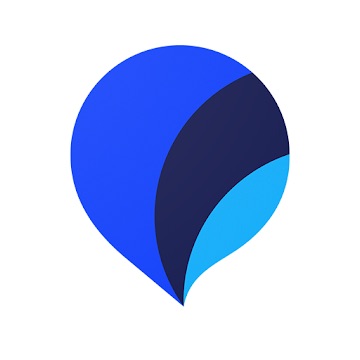
Pimsleur, an American company founded in the 60s, is considered a classic in language-learning circles for good reason.
Their famous “Pimsleur Method” has helped scores of people learn languages from French to Arabic.
While pretty classic and serious, along the lines of Rosetta Stone (more on that below), with their massive budget and school-type approach, Pimsleur does seem to be the more effective one in terms of building knowledge.
Pimsleur Italian learning app takes thirty minutes a day and comes with all the usual suspects of learning a language:
- building vocabulary
- understanding Italian grammar rules
- recording speech to check for spelling and help with fluency
- and a whole lot of multiple-choice answers.
While the app is technically free, it only comes with one unpaid trial lesson, after which the language course is quite hefty in terms of price.
They do, however, promise to get you up to an intermediate level in thirty days. Plus, if you sign up for classes on the app, you can use their website, as well.
Best for: Those who long for a serious course and don’t mind paying the price, are familiar with the very basics of Italian, and have half an hour a day to devote to the task.
*Pimsleur is very similar to the marketing giant language school Rosetta Stone, which is why I haven’t devoted a separate entry to them.
Rosetta Stone may be great as a comprehensive language learning option, but if you’re just using the app, the system comes with a number of flaws.
It’s very expensive for what it offers, and its platform is limited to advanced students, even in the “beginner” mode, since it lacks almost all explanation and description, throwing students curveball after curveball, which isn’t very helpful.
#6 Mondly
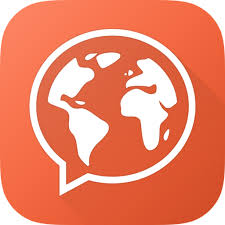
Mondly, a very widely used app, is a great choice for those mid-level students who want to broaden their vocabulary or learn the tenses of Italian verbs.
This doesn’t mean that you can't use Mondly if you're a beginner — you can specify your skill level at the start.
But just that learners who come to the app with some knowledge of Italian will find it offers the best option for improving language comprehension.
Mondly also has a strong community component since you can compete with friends and other learners and be motivated by their successes in learning Italian, as well as test your knowledge against theirs in the games the app offers.
The only catch is that Mondly is not free after the trial period – not even for basic features. But the reasonable price is more than worth the service this app provides.
Best for: Competitive intermediate learners.
#7 Babbel
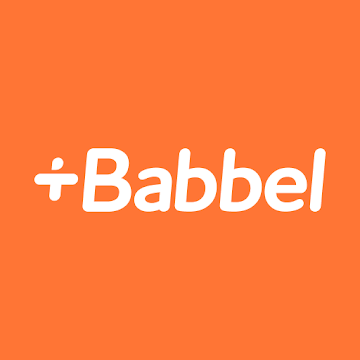
Babbel is a comprehensive language-learning platform.
Students of every kind — from absolute beginners to advanced speakers — can find the right path.
Like Pimsleur and some other Italian apps, Babbel offers a web platform that includes learning on the app and its site.
And like Pimsleur, Babbel is much like a language school, but online.
Babbel includes the first lesson of any language for free and becomes a paid service thereafter. Though, unlike Pimsleur, it's not prohibitively expensive.
While it’s younger than some competing online language schools, Babbel has become an incredibly popular learning platform and takes teaching seriously.
There are all sorts of different tasks to complete on every level, aimed towards helping you build your Italian vocabulary and speak useful Italian.
So there are no sentences you will never use, such as “the pen is on the table,” with Babbel learn Italian.
You learn things that actually interest you thanks to mock realistic dialogues, recorded repetitions to improve your Italian pronunciation, and a choice of topics at every level. Babbel also has a beautiful design that makes the app super simple to use.
Best for: Students at any level who are serious about learning and don’t mind devoting the time. But don’t feel like shelling out big bucks.
*Babbel is quite similar to Nemo, except for the fact that Nemo prioritizes hands-free learning, which can be great for busy people.
But the app doesn’t get its own entry in this article. Here's why – if you're a serious learner, the selling point of being able to repeat Italian phrases into your headset isn’t enough to warrant downloading it over other options.
#8 FluentU
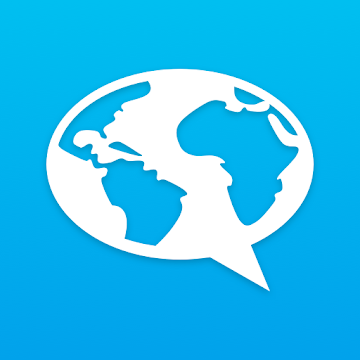
FluentU approaches language learning somewhat differently from other apps: it emphasizes real-world interactions instead of dry vocabulary lessons.
So you watch videos and (hopefully) pick up Italian somewhere along the way.
This is helpful if you prefer a more realistic approach to your learning Italian app.
For every lesson, you’ll watch a video so that you can understand the context and tone of words and phrases better than just written words to memorise or even sentences to repeat.
Their (always subtitled) videos are super varied, from news clips to movie trailers, so that you really feel surrounded by Italian as it’s really spoken and used in Italy.
Some classic vocabulary and grammar lessons are still featured, of course. But the focus is on the visual medium of learning. It's a great conversational Italian app.
FluentU offers courses for every level of learner. But it depends on your learning style, rather than your level of knowledge, as to whether or not this approach works for you
This is an app with a beautiful interface. And a lot of work seems to have been put into producing the content.
Perhaps because of this, FluentU doesn’t exactly come cheap, though it isn’t the most expensive language course on this list. The free trial lessons can help you decide whether this approach is right for you.
Best for: If you lose interest in classes of an educational dryness quickly. And if you prefer hearing (and seeing) people talk rather than just reading.
#9 Busuu
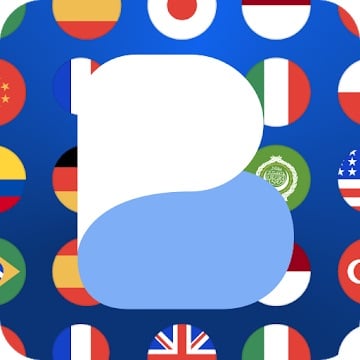
Busuu Italian focuses on covering the specifics of Italian rather than an immersion in Italian culture as a tool for learning.
This means that lessons will be pretty straightforward multiple choice questions and word memorisation.
However, there is one advantage Busuu has over other apps to learn Italian, and that’s the possibility of interaction with native speakers.
Here, you can write things using the words you’ve learned, and native speakers will correct the texts. Both this and the general method make Busuu a great choice for beginners.
While there is a free version that includes the things mentioned, an upgrade to premium is recommended if you want to use all the features of the app, like actually speaking to locals to improve your fluency and verbal comprehension.
The premium comes at about the price of a coffee each week. So it’s nowhere near expensive for what it offers. The paid version also includes an accredited certificate for those who complete the course if that’s something that interests you.
Best for: Those looking for a personal connection with native speakers and for those who prefer active to passive learning.
Best Apps For Improving Your Italian Conversation
#10 Italki
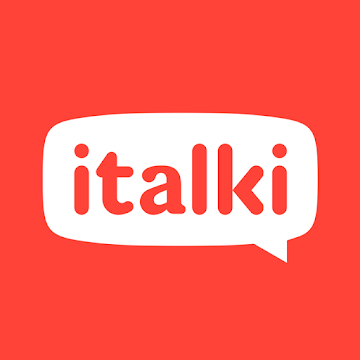
Much like Busuu, Italki emphasizes speech, only more so. With Italki, you’re basically signing up for real-life lessons with real Italian tutors over video chat.
While the name would have you believe that the app is Italian-specific, Italki actually covers over 130 languages.
That means its outreach is large enough to accommodate a lot of learners, and teachers, too.
Since this is a very different service, the app works a little differently, as well. It's completely free to sign up, and you only pay for lessons with your Italian tutor.
Here, prices vary greatly. And it’s up to you to decide what the best balance is between the cost and the service provided.
While none of the teachers are a steal, exactly, the hour-long lessons tend to be cheaper than a real-life tutor.
Plus, it helps to think that most of the money goes to them, real people focused on you as a unique student, rather than a pre-packaged app that’s the same for everyone.
With Italki, you can chat with the teacher, ask specific questions and upload written homework for correction.
While Italki is probably one of the best options to learn Italian properly, you may find it suits you best if you've covered the basics of the language already.
The majority of the teachers are native Italian speakers and offer trials so you know if they are a good fit before committing.
Best for: Those who thrive in a fully personalized, professional learning environment instead of a one-size-fits-all course. Or want to supplement learning with some interactive classes.
*An alternative to Italki that works much in the same way is TakeLessons. The app also offers free group classes in the first month of joining.
#11 Tandem

Tandem is a language exchange app that lets you find language partners to practice your Italian language skills.
You can use the app to connect with someone who is a native speaker of your target language and looking to improve their own skills in your native language.
You can search for people based on their language, interests, location, and language level. You schedule a time to chat with them and start talking!
It's a great way to learn new words and have real-life conversations with native Italian speakers.
Don't forget it's a two-way thing, and you'll need to teach your partner your native language in return. You can ask your partner to teach you more about Italian culture, or perhaps you have a hobby in common that you'd like to discuss; the possibilities are endless!
Because the platform is for exchange, it's free to sign up, and you will get free lessons with your partner. It's the best app for conversations between native speakers.
Best for: Real life, everyday conversation practice.
Best Italian Apps For Full Immersion
#12 Ling App

Are you eager to embark on a journey to learn Italian?
Whether you're just starting out or looking to enhance your Italian language skills, look no further than the Ling app!
What sets the Ling App apart is its comprehensive approach, catering to learners of all levels – from absolute beginners to those who can already converse fluently in Italian.
If you're seeking a one-stop solution for mastering Italian, Ling App is your ideal choice.
With Ling, you’re in control of what you learn, how you learn, and when you want to learn. What’s really great is you can set when you want to be reminded to learn and can learn for as long or as little as you want.
Each module comes with 200 lessons filled with different activities including:
- grammar tips
- flashcard games
- fill in the blank activities
- exams to test your mastery
- practice writing on your phone
- listen to and practice real life conversations
There’s also a chat bot to help you record and practice pronunciation.
Best For: Ling App is the perfect choice for language learners looking to learn the 4 main skills of any language; reading, writing, listening and speaking, offering comprehensive lessons that lay a strong foundation for your Italian language journey.
#13 Rocket Languages

Rocket Languages is actually one of the older language-learning software programmes from back when things were on CD-ROMs.
Founded in 2004, they've helped millions of users around the world learn a large variety of different languages.
You can now use the Rocket Italian app to practice the essentials of Italian.
You'll master essential words and phrases, take part in audio lessons, listen to Italian pronunciation, and use voice recognition tools to check your own pronunciation.
Rocket Italian will also teach Italian grammar as it includes step-by-step explanations of important grammar points. You'll be able to master all the tenses and more in no time.
Best for: People who like learning in a more traditional, textbook style and want to know the ins and outs of Italian grammar.
#14 MosaLingua
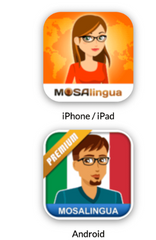
MosaLingua is an app with the option to learn eight different languages and has a very comprehensive Italian offer.
The great thing about the MosaLingua app for Italian is that it offers a really immersive learning experience.
You can use it as a flashcard app, but it also gives you access to a lot of resources, such as videos, songs and books.
Jokes, stories and Italian expressions are all part of the curriculum so you can learn to speak like a real Italian.
You can also customise your learning plan to meet your goals. Travelling to Italy and need to learn specific vocab fast? You can build a customised plan; it's easily the best app to learn Italian for travel.
With over 3,500 flashcards, you'll never run out of words to learn! The app uses the spaced repetition method so you don't forget new vocab before it sticks in your long-term memory.
While the resources on offer are excellent, the user experience isn't as slick as some of the other apps for learning Italian.
The app is free before you subscribe and then costs $9.99 per month.
Best for: Those who want full immersion in the language and access to reading material relevant to their level. The app offers content for levels A1-C1 on the Common European Framework of Reference for Languages.
#15 News In Slow Italian

If you're after full immersion and want to learn more about current affairs in Italian, this could be the app for you.
You can select your Italian language level, and the app will give you current affairs stories at exactly the right pace.
You can listen to the story (there are many different topics to choose from) while reading along at the same time.
The app is free for a fixed amount of content; you just need to create an account to access it. There are also Italian podcasts available as part of the News In Slow Italian app.
Best for: Learning the Italian language and vocabulary in context while practising your listening comprehension.
Best App For Learning Italian Vocabulary
#16 Clozemaster

If you like games, you'll love learning Italian with Clozemaster. With an impressive 50 languages on offer, you can keep learning forever!
It teaches you vocabulary in context as you fill in the gaps in sentences. There are thousands of sentences uploaded to the app, so you'll never get bored with the same vocab.
The app works using spaced repetition, so you'll receive just the right amount of reminders before you forget what you learned.
It's fun to use, and you can easily measure your progress using word frequency. There's even a leaderboard so you can measure yourself against other learners.
The app is totally free to download and use. If you want access to advanced features like grammar exercises and stats, you'll need to pay for a Pro subscription.
Best for: Those who want to learn lots of vocabulary fast and use it in context. Great if you don't want to pay for an app subscription.
FAQ About Italian Apps
Is it possible to learn Italian only using an app?
While using an app will definitely immerse you in the language and help you pick up vocabulary and grammar rules, nothing beats learning Italian in context.
Listening to real conversations and speaking to people in Italian is going to help you get fluent quicker.
The apps are great for getting started, but most of them don't have a conversation or speaking feature, so you may struggle when it comes to having a real chat with real people.
If you want to really accelerate your learning, think about hiring a private Italian tutor so you can take Italian lessons and practice what the apps teach you.
Listening to Italian podcasts, reading Italian books, and watching Italian films will all help you progress in your learning too.
How long will it take me to get fluent in Italian if I use an app?
This totally depends on how much time you want to dedicate to learning Italian. If you practice daily, you will see more rapid progress than if you practice once a week.
If your goal is to have a fluent conversation, you'll need to use more than apps to practice.
Mastering a language is a lifetime pursuit, so don't kid yourself that a few months of learning with an app will make you fluent!
An Alternative To Italian Learning Apps
So you see, each option for the Italian apps I mentioned above is a fine choice for you if you’re trying to learn Italian. The best app for learning Italian depends on your preference.
Maybe you've taken dozens of Italian language lessons but don't feel like you're making much progress.
That said, in the grand scheme of things, it really doesn’t matter which way you learn Italian. Why? Because as long as you just keep at it, you will get there.
But an app won't do the hard work for you of speaking the language. You can't get fluent in Italian just by using an app. (No matter what the app villain says).
For that, you'll need something more comprehensive. That's why I created…
Italian Uncovered

Italian Uncovered is my comprehensive beginner programme that teaches you to speak Italian through StoryLearning®.
It's not an Italian app, but you can still use it on ANY device – computer, laptop, smartphone or tablet.
This comprehensive beginner programme teaches you Italian through a fun and natural method that makes learning a pleasure and grammar a breeze!
It goes far deeper than even the best app to learn Italian. And will give you a very thorough grounding in Italian.
You see, language apps might appear flashy and modern…
But they lack the depth you need to truly master Italian.
The only way to achieve a high level of Italian is to immerse yourself in the Italian language! And that's what you do in Uncovered by learning through story from Day 1.
With stories, you can:
- Learn Italian faster through immersion instead of rote learning
- Memorise vocabulary more easily by seeing it in context
- Learn grammar naturally, not through rules!
- Understand Italian more easily, thanks to lots of reading and listening practice
Pretty effective, right?
To find out more about Italian Uncovered, to try it out for free or to enrol in the programme, click here.







































